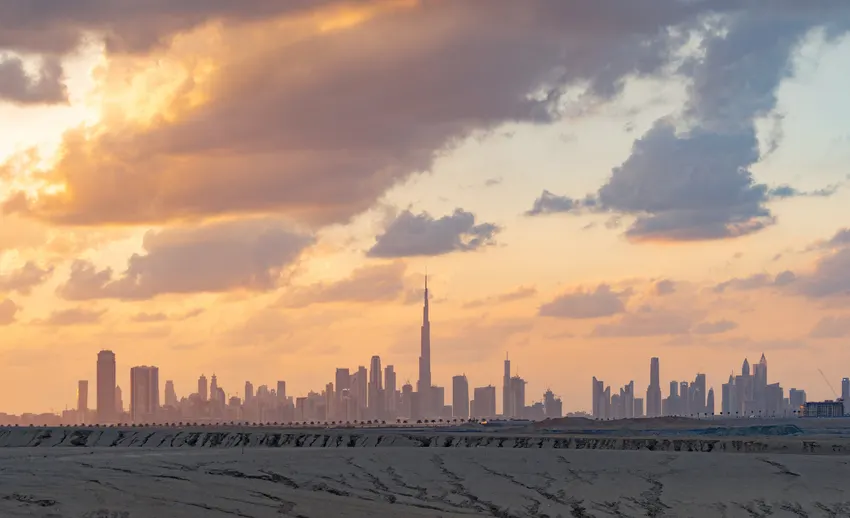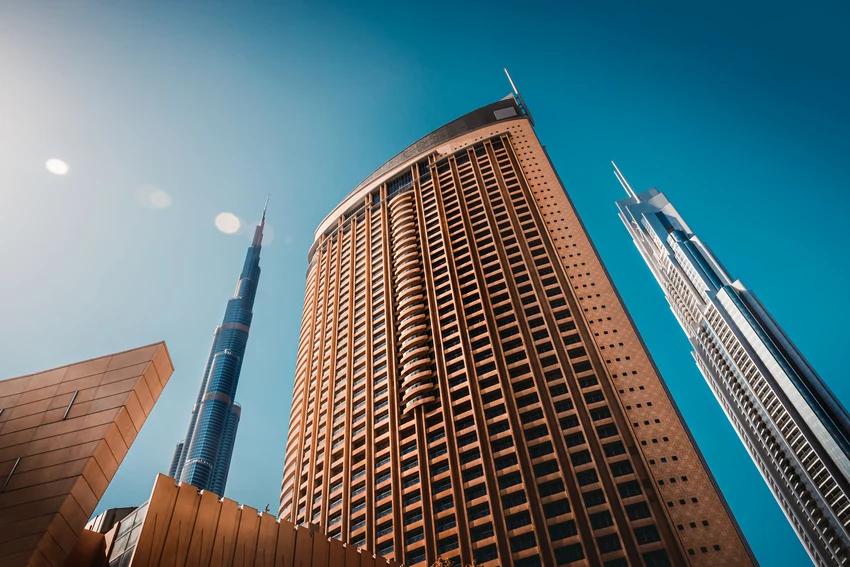A Complete Guide to Public Fund Setup in DIFC

Key Highlights
- The Dubai International Financial Centre (DIFC) serves as a premier financial hub in the Middle East, offering robust opportunities for investors and fund managers.
- Public funds in DIFC provide access to retail clients with no minimum subscription requirements, making them highly accessible.
- The Dubai Financial Services Authority (DFSA) enforces a strong regulatory framework, ensuring investor protection and compliant fund management.
- DIFC promises zero taxes on capital gains, profits, and employee income for a 50-year period, enhancing tax efficiency for funds.
- The legal framework supports 100% foreign ownership and cross-border financial activities, making the DIFC attractive for both domestic and global fund managers.
Introduction
The Dubai International Financial Centre (DIFC) is known as a leading place for finance in the world. The centre is popular with businesses and those who want to invest or find good financial opportunities. Setting up public funds in DIFC gives you great benefits. It is easier for retail clients to use, and you get a clear set of regulatory framework rules because the DFSA handles them. You may want to grow into the Middle East, South Asia, or even other parts of the world. The DIFC offers unmatched help, support, and strong, clear legal rules. That is why many people see it as the best place to set up their investment funds.
Key Advantages of Setting Up a Public Fund in DIFC

One of the great things about starting public funds in the Dubai International Financial Centre is that it follows worldwide investment rules set by the Dubai Financial Services Authority (DFSA). This gives the fund a lot of trust and confidence from investors. Fund managers also get to work in one of the leading financial places and can find good chances to grow, with strong legal help to support them. This makes DIFC a great choice.
Also, funds in DIFC offer a good place for putting money. Their tax rules do not add extra costs and their special spot on the map helps. This makes it simple for investment funds to grow in the Middle Eastern and South Asian areas.
Robust Legal and Regulatory Framework
The regulatory framework in DIFC is well-known around the world for strong investor protection. The Dubai Financial Services Authority (DFSA) looks after this system. It makes sure that everyone follows top global rules like the IOSCO principles. This helps to make all fund business more open and clear for everyone involved. There are also independent courts that use common law. This gives both fund managers and investors extra legal safety.
Legal counsel is very important for following the sometimes tricky rules. Fund managers have to follow standards set by DIFC. These rules make sure that they keep investment jobs and how things are valued separate as the law says.
This setup also lets people take part in cross-border financial activities without much red tape. That makes DIFC a top place for people who want to put money in from around the world. With its strong laws and clear system, public funds end up drawing in more institutional investors. This builds more trust and helps DIFC grow as a safe place for people to invest.
Keywords used: dubai financial services authority, regulatory framework, institutional investors, public funds, legal counsel
Tax Efficiency and International Treaties
Tax neutrality is one of the main features of public fund setups in the DIFC. If you are a fund manager in the DIFC, you do not have to pay corporate tax. There are also no taxes on capital gains, profits, or employee income for up to 50 years. This gives funds a big edge. The money made stays with the fund, which helps attract more people from all over the world.
The United Arab Emirates, where the DIFC is based, also has many double taxation treaties. This means that DIFC funds can pay less withholding tax when they work in places like India or the Middle East. These treaties help to make the investment structures better. This way, DIFC-based funds can compete more easily with others.
All these tax savings and the help from these treaties mean that DIFC funds can give better returns than funds in many other places. If you are a fund manager, this tax setup makes your work more efficient. It also helps you offer your clients more financial security, both now and in the future.
Understanding Public Funds in DIFC
Public funds in DIFC give both retail clients and institutional investors a simple way to start investing. There is no minimum subscription requirement, and there is no limit on how many people can join. This helps the general public take part.
These funds follow rules based on IOSCO principles. This brings transparency to the table and builds trust. Public funds are a good choice for fund managers who want everyone to have a chance. They also help connect people to new investment chances in DIFC’s worldwide market. This setup helps boost investor confidence and helps these funds reach more people.
Definition and Unique Features of Public Funds
A public fund in DIFC is an investment type made for the general public and has no limits on how many people can join. Anyone can take part because there is no minimum subscription requirement. This way, retail investors can join in with ease.
Some key points are that people can buy units in these funds openly, and there must be strict following of DFSA rules. The Net Asset Value (NAV) gets reported two times a month. This lets potential investors always have up-to-date and clear information. Also, the public fund must have independent directors who help with oversight by looking out for everyone.
The funds work hard to let everyone in by following the IOSCO principles, which watch out for the safety of investors and make sure the fund is trusted. Having such a low entry point means that many people from different areas can take part. This makes public funds more competitive while making space for broad participation in global markets.
Comparison with Exempt and Qualified Investor Funds
Public funds, exempt funds, and qualified investor funds in DIFC differ based on subscription requirements, targeted clients, and regulations. Below is a detailed comparison:
| Fund Type | Minimum Subscription Requirement | Target Audience | Number of Unit Holders | Approval Timeline |
| Public Funds | None | Retail Clients | Unlimited | ~3 months |
| Exempt Funds | $50,000 | Professional Clients | ≤100 | ~6 weeks |
| Qualified Investor Funds | $500,000 | High-Net-Worth Clients | ≤50 | ~14 days |
Public funds cater to the general public, exempt funds focus on professional investors, while qualified investor funds target high-net-worth individuals for greater exclusivity.
Regulatory Requirements for Public Fund Setup

To start a public fund in the DIFC, you must follow the strict regulatory requirements set by the Dubai Financial Services Authority. You have to meet high standards for risk management and follow clear rules for how the fund is run. This is to make sure all investors stay safe.
Fund managers need to have the right paperwork and they also have to choose service providers that the Dubai Financial Services Authority approves. These service providers include people who handle compliance and administration. This helps the fund work well. This strong set of rules makes people trust DIFC public funds. Professionals and investors see them as safe and reliable ways to use and put in their money.
DFSA Rules and Governance Standards
The DFSA Hedge Fund Code of Practice is the top guide for good governance in DIFC. Every fund manager must follow strict rules and keep clear records to show they meet the standards. They need to name boards that are independent. There should also be ways set up to keep capital safe for the funds.
The Dubai Financial Services Authority (DFSA) looks over regular reports about what the funds are doing. It wants to see a full review of risks so everything stays open and clear. Fund managers have to keep important jobs, like valuing the fund and doing office checks, done by different people.
If we look at property funds, they follow their own rules for valuation, meeting the law, and reporting unit details every three months. It does not matter if it is for hedge funds or for private equity. The DFSA in DIFC helps make sure there is good governance for all.
Minimum Capital, Service Providers, and Compliance
Capital requirements for public funds in DIFC help keep the system strong. Fund managers have to keep enough money on hand. They must choose the largest amount between basic capital, their spending plans for thirteen weeks, or money kept safe for clients. This amount often starts at $70,000.
Service providers are very important in this process. Auditors, fund administrators, and legal professionals help make sure the fund is following DFSA’s rules. There are also extra checks, like independent valuation and custody services, to make sure everything is handled right.
The compliance measures are strict. They include steps against money laundering, subscription agreements, and following DFSA’s main rules. These requirements help keep things safe for people and make retail clients trust the system more.
Step-by-Step Process to Establish a Public Fund in DIFC
Starting a public fund in DIFC takes a few clear steps. First, the fund managers need to send an early application. In this, they show what the fund will do, talk about the legal entity, and set out the business setup. This is done to make sure it matches what the DFSA looks for. After that, the managers have to send documents for a deeper look. This includes the fund constitution and the needed subscription agreements.
When the managers get in-principle approval, the next steps have to do with setting up the fund the right way. They need to make the fund a legal entity. They also pick the fund administrator. All work terms must be met and checked. As soon as the fund is registered, managers can start calling for money from investors. This helps to speed things up and makes the fund ready to go.
Application, Documentation, and Approval Timeline
The application process starts when you send a business plan and three-year money plans to DFSA. Fund managers put together detailed documentation. This covers their plans for investing, subscription agreements, how they handle conflicts, and how they decide what things are worth.
When DFSA reviews your application, they meet to learn about how the fund is managed. They look closely at if the managers can do their jobs well. If you are dealing with public funds, getting approval may take up to 3 months. This is because there are more checks on how things are run.
When you get approved, it only takes a few weeks for your fund to start calling for money. This careful process shows how strict and good the DIFC rules are.
Conclusion
To sum up, setting up public funds in the Dubai International Financial Centre brings many benefits. The DIFC is known for its strong legal system and tax advantages. This place is also good for bringing in international investors. You need to understand the special features of public funds and follow all regulatory requirements for things to go smoothly. When you set up your fund, pay attention to the needed papers and make sure you meet all rules to have long-term success. If you want to take the next step with your public fund, contact us for a free consultation. Our experts can help you understand the details of dubai international financial centre rules and help you reach your financial goals.
Frequently Asked Questions
What is the role of the DFSA in public fund setup?
The Dubai Financial Services Authority is the main regulatory authority for public funds in the DIFC. It makes sure everyone follows the rules and watches over fund management. The DFSA works to protect investors at all times. Fund managers have to meet strong regulatory requirements. They must show clear governance and set up good policies before they can get approval to operate.
How long does it take to launch a public fund in DIFC?
Starting a public fund at the Dubai International Financial Centre (DIFC) will often take about 3 months. This time includes getting DFSA approval, checking the application, and doing the legal setup. If you give the right documentation and work with trusted service providers, you can make the process go quicker.
What are the key ongoing compliance obligations?
DIFC public funds have to follow strict rules all the time. They need to meet rules like anti-money laundering checks, capital requirements, regular audits, and risk management steps. A fund administrator helps by making sure reports are correct and the fund is working inside the regulatory framework.
Can foreign investors participate in DIFC public funds?
Yes, foreign investors can take part in DIFC public funds. Both the general public and institutional investors are able to invest in these funds. The way these funds are set up is regulated and matches global standards. This gives them flexibility and makes them a good choice for many people to join. Investors can also join qualified investor funds, which focus on high-net-worth clients in the global market.
Are there specific tax incentives for public funds in DIFC?
Yes, DIFC gives tax-neutral benefits. This helps public funds work better with their money. In the United Arab Emirates, you do not pay taxes on capital gains, profits, or worker pay. Because of these tax rules, retail and investment funds like to come to DIFC. It is now a top choice for people who manage funds from all over the world.

